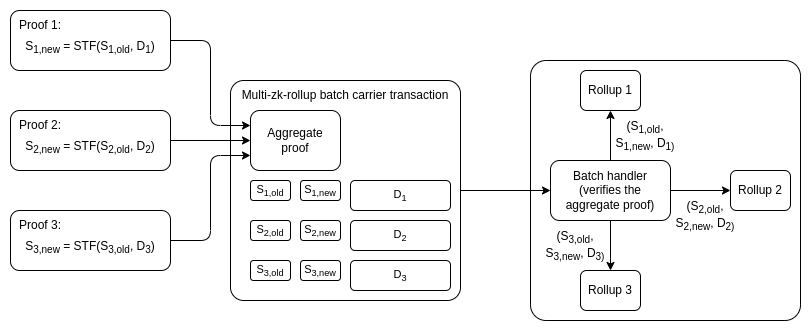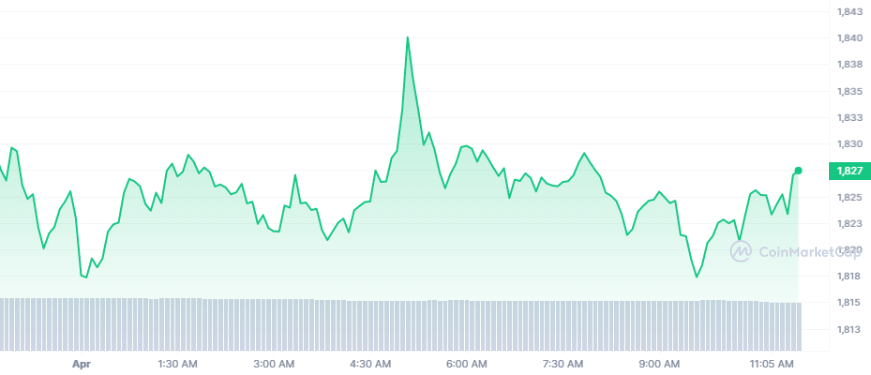Vitalik Buterin, co-founder of leading altcoin Ethereum, recently published an article discussing the possibility of reducing the size of Ethereum blocks. Here are the details…
New article from altcoin inventor Buterin
Buterin published an article on shrinking Ethereum blocks. Such a development could allow anyone to run a full verification node on their laptop or even their phone. Additionally, the purely Ethereum equivalent Zero Knowledge Execution Environment (ZK-EVM) can be used to verify the Ethereum Virtual Machine (EVM) execution of a layer-1 (L1) Ethereum block. Buterin also thinks that AI can strengthen formal verification to the point where ZK-EVM implementations can prove to be equivalent and identify any bugs that cause differences between them.
Instead of having a single reference client, Ethereum has a jointly managed specification and multiple teams that implement the feature called client. Each Ethereum node runs a consensus client and an execution client. As of today, no consensus or execution clients make up more than two-thirds of the network. The original motivation of Ethereum’s multi-client system philosophy was to reduce the risk that a bug in a single piece of software could lead to catastrophic disruption of the entire network.
For example, the 2010 Bitcoin overflow bug showed the risks of having a single client. If there were more than one Bitcoin client, they would all be less likely to have the same error, and the faulty side of the split would likely lose. However, there is a tradeoff to using the multi-client approach to minimize the risk of catastrophic error: instead, a consensus error occurs.

Confirmation of the ETH chain
The rise of ZK-EVMs will bring a major shift in the way the Ethereum chain is validated. ZK rollups already actively used on the mainnet use SNARKs that prove EVM execution. In the long run, ZK-EVMs will be used not only for rollups, but also to verify execution at layer-1. Once that happens, ZK-EVMs will become a third Ethereum client that is just as important to the security of the network as execution clients and consensus clients today.
However, this naturally raises the question: How will ZK-EVMs interact with a multi-client philosophy? There are some interesting technical challenges to solve, such as creating a “multi-client” ecosystem to verify the authenticity of Ethereum blocks with ZK. Despite these challenges, Ethereum’s multi-client philosophy remains an important aspect of its decentralization strategy, and the rise of ZK-EVMs will only make this philosophy more important in the years to come.

One approach that addresses the challenge of maintaining a multi-client ecosystem for ZK proving the authenticity of Ethereum blocks is to use formal verification. Formal verification is a method of verifying software by mathematically proving that it meets its specifications. This approach has been used successfully in other industries such as aerospace and finance and is being increasingly adopted by Blockchain projects as well.
AI can strengthen verifications
Vitalik’s post suggests that artificial intelligence (AI) can strengthen official verification and make it easier to identify any bugs that cause differences between ZK-EVM applications. This could be a major breakthrough in the development of a multi-client ecosystem that validates Ethereum blocks with ZK. Overall, Ethereum’s multi-client philosophy has been a key factor in its success as a decentralized and secure platform. As the platform continues to evolve and new technologies such as ZK-EVMs are introduced, maintaining a multi-client ecosystem will become even more important.

Meanwhile, Ethereum surged after Buterin’s post. The leading altcoin rallied from $1,788 to $1,844. At the time of writing, it is trading at $1,827, up 2%.
Contact us to be instantly informed about the last minute developments. twitter‘in, Facebookin and InstagramFollow and Telegram And YouTube join our channel!
Risk Disclosure: The articles and articles on Kriptokoin.com do not constitute investment advice. Bitcoin and cryptocurrencies are high-risk assets, and you should do your due diligence and do your own research before investing in these currencies. You can lose some or all of your money by investing in Bitcoin and cryptocurrencies. Remember that your transfers and transactions are at your own risk and any losses that may occur are your responsibility. Cryptokoin.com does not recommend buying or selling any cryptocurrencies or digital assets, nor is Kriptokoin.com an investment advisor. For this reason, Kriptokoin.com and the authors of the articles on the site cannot be held responsible for your investment decisions. Readers should do their own research before taking any action regarding the company, assets or services in this article.
Disclaimer: Advertisements on Kriptokoin.com are carried out through third-party advertising channels. In addition, Kriptokoin.com also includes sponsored articles and press releases on its site. For this reason, advertising links directed from Kriptokoin.com are on the site completely independent of Kriptokoin.com’s approval, and visits and pop-ups directed by advertising links are the responsibility of the user. The advertisements on Kriptokoin.com and the pages directed by the links in the sponsored articles do not bind Kriptokoin.com in any way.
Warning: Citing the news content of Kriptokoin.com and quoting by giving a link is subject to the permission of Kriptokoin.com. No content on the site can be copied, reproduced or published on any platform without permission. Legal action will be taken against those who use the code, design, text, graphics and all other content of Kriptokoin.com in violation of intellectual property law and relevant legislation.
